Alcohol and Drug Treatment Medication
The use of medication in treating drug and alcohol addiction is formally known as “Medication Assisted Treatment” or MAT. MAT is used to treat opioid addiction as well as alcohol addiction. Each addiction medication offers a specific type of relief for the patient working to become and remain sober.
Recovery Delivered is proud to offer numerous medications to our patients around the country. Read below for more information about what we offer. Most of these addiction medications can be delivered directly to your door, although Vivitrol® must be sent to a healthcare professional – a process we are happy to manage. If you are looking to learn more about a medication for the treatment of addiction, click on the “Learn More” button to be taken to a page specially about that medication.
How Addiction Medication Helps With Treatment
Each medication works in a specific way to aid the prescribed with their addiction. Most medications are used to either aid in the detox/withdrawal process or to help patients remain sober by diminishing the strength of cravings. Some medications simply block the effects of opioids or alcohol, while others provide the patient a very eventful, unenjoyable experience if they consume alcohol.
Medication for Drug Withdrawal and Detox
The first step in recovery is removing the drugs and/or alcohol from the body. This process is referred to as the detox phase of recovery. Depending upon the drug and the daily use habits, the detox period could last from 3 days up to a few weeks. During this time, the patient may feel a multitude of physical and emotional withdrawal symptoms which include:
- Anxiety
- Depression
- Nausea
- Seizures
- Muscle Aches
- Sweating
Alcohol Addiction Medications
Acamprosate (Campral®):
Disulfiram (Antabuse®):
Heroin and Opioid Addiction Medication
Medications for opioids and painkillers are:
Suboxone
Suboxone is an FDA approved prescription medication that works as an opioid agonist which helps ease withdrawal symptoms from other opioids and opioid antagonist which which blocks the effects of opioids.
Generic Suboxone
(Buprenorphine/Naloxone)
Vivitrol®
Suboxone is an FDA approved prescription medication that works as an opioid agonist which helps ease withdrawal symptoms from other opioids and opioid antagonist which which blocks the effects of opioids.
Antabuse®
What Is Antabuse? Drowsiness Headache Acne Metallic Taste in Mouth Change in Vision Decrease in Sexual Ability
Campral®
What is Campral? Learn About Campral® Drowsiness Headache Loss of Appetite Stomach Pain Weight Loss Constipation

